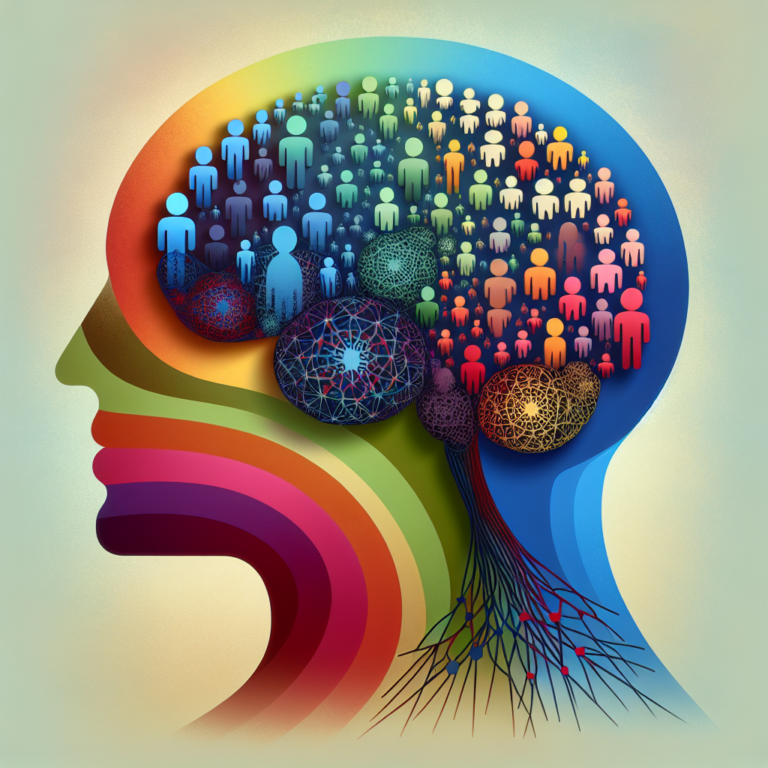
Introduction
In an era marked by unprecedented shifts in technology, economy, and social dynamics, the concept of "emerging adulthood" has taken on a new significance. Navigating the New Normal: Understanding Emerging Adulthood in Today’s Society is not just an academic endeavor; it’s a critical framework for understanding the challenges and opportunities faced by young adults in the 21st century. As the lines blur between adolescence and full adulthood, emerging adults navigate a complex landscape, often characterized by uncertainty, self-exploration, and a quest for identity. This article explores these nuances and offers valuable insights for both young adults and those who support them.
The Concept of Emerging Adulthood
Defining Emerging Adulthood
Emerging adulthood, defined by psychologists Jeffery Arnett, spans roughly ages 18 to 29. This period marks a transitional phase where individuals explore their identities, pursue educational and career aspirations, and navigate personal relationships. It is a time characterized by rich experiences but also significant challenges, especially in a world that is continually evolving.
Cultural Context
Different cultures experience emerging adulthood uniquely. In Western societies, the journey often emphasizes individualism, education, and delayed marriage. However, in many collectivist cultures, family influence may play a more substantial role. Understanding this cultural context is essential for effectively navigating the new normal.
The Three Pillars of Emerging Adulthood
1. Identity Exploration
Identity exploration is a central theme of emerging adulthood. This stage provides individuals with the freedom to experiment with various roles and lifestyles. According to a study published in the Journal of Youth and Adolescence, periods dedicated to personal exploration often enhance self-awareness and emotional resilience.
Case Study: Jane’s Journey
Jane, a 24-year-old graphic designer, embodies identity exploration. After switching majors three times in college, she finally found her passion in visual arts. Jane’s journey reflects the freedom and frustration of this phase; she learned that self-discovery often requires trial and error—a hallmark of navigating the new normal.
2. Instability
Emerging adults frequently experience instability, whether in their living situations, careers, or relationships. This transient phase can feel isolating yet liberating. According to research from the American Psychological Association, almost 60% of emerging adults report feeling a sense of instability in their lives.
Case Study: Mark’s Move
Mark, a 27-year-old who has moved five times in the last three years, encapsulates this instability. Each move, though challenging, allowed him to discover new communities, fostering personal growth. Mark’s experiences illustrate the adaptability required to navigate life in today’s fast-paced world.
3. Self-Focus
While societal expectations often emphasize commitment and responsibility, emerging adulthood is primarily marked by a focus on the self. This is the time for personal development and growth before diving into long-term commitments. Research shows that this self-focused exploration can lead to better decisions as individuals align their futures with personal values.
Case Study: Lisa’s Freelance Adventure
Lisa, a freelance writer, prioritized self-discovery by traveling around the globe. Her experiments with different cultures and lifestyles enriched her creativity and confidence. This case exemplifies how self-focus can not only guide life choices but also inspire professional endeavors.
Challenges in Navigating the New Normal
Economic Pressures
Emerging adults face mounting economic pressures, from student debt to job scarcity. A report from the Federal Reserve revealed that nearly 70% of college graduates experience significant financial burden. This reality impacts their ability to invest in homes, start families, or achieve other markers of traditional adulthood.
Mental Health Concerns
The pressures of uncertain employment and social expectations can heighten anxiety levels among emerging adults. The National Institute of Mental Health notes a staggering increase in anxiety and depression rates in this demographic. It’s crucial for young adults to seek supportive networks and mental health resources.
Social Isolation
Despite being constantly connected through technology, many emerging adults report feelings of loneliness. A study from Cigna found that nearly 61% of Americans report experiencing loneliness, exacerbating the challenges of identity exploration.
Navigating the New Normal: Strategies for Success
Embrace Flexibility
Embracing a flexible mindset helps emerging adults adapt to the unpredictability of life. Accepting change and cultivating resilience are essential skills in today’s world.
Build a Support Network
A strong support network is invaluable. Connecting with peers, mentors, and family can provide emotional support, guidance, and collective experiences that enrich the journey through emerging adulthood.
Pursue Lifelong Learning
In a rapidly changing job market, staying adaptable through continuous learning is essential. Emerging adults should seek out opportunities for skill-building, whether through formal education or self-directed learning.
Practice Self-Care
Mental well-being is crucial during this transitional period. Self-care routines—such as mindfulness practices, exercise, and hobbies—help maintain balance amidst challenges.
Engage in Community
Engaging with local communities not only fosters a sense of belonging but also provides opportunities for personal growth. Activities like volunteering can enhance social networks and enrich personal fulfillment.
Conclusion
Navigating the New Normal: Understanding Emerging Adulthood in Today’s Society offers essential insights into the evolving landscape faced by young adults. By embracing identity exploration, accepting instability, and focusing on personal growth, young adults can thrive in this transformative phase of life. The endpoints of emerging adulthood may vary, but the journey is universally significant.
As we continue to redefine what it means to be an adult in today’s society, the experiences of individuals like Jane, Mark, and Lisa remind us of the importance of resilience, adaptability, and community. The transition may be challenging, but the rewards of growth, exploration, and self-discovery make the journey worthwhile.
FAQs
1. What is emerging adulthood?
Emerging adulthood refers to the developmental stage between 18 to 29, characterized by exploration of identity, self-focus, and varying degrees of instability.
2. What challenges do emerging adults face today?
Emerging adults today contend with economic pressures, mental health concerns, and social isolation, all shaped by the complexities of modern society.
3. How can I support an emerging adult?
Encourage open communication, offer emotional support, and help them build a strong network of peers and mentors.
4. What role does education play in emerging adulthood?
Education can provide essential skills and experiences that shape career options and identity during this formative period.
5. How can emerging adults practice self-care?
Emerging adults can practice self-care through mindfulness, physical activity, maintaining social connections, and pursuing hobbies that spark joy.
Navigating the New Normal: Understanding Emerging Adulthood in Today’s Society allows us to better comprehend and support this critical stage of life, offering hope and inspiration for the future.














